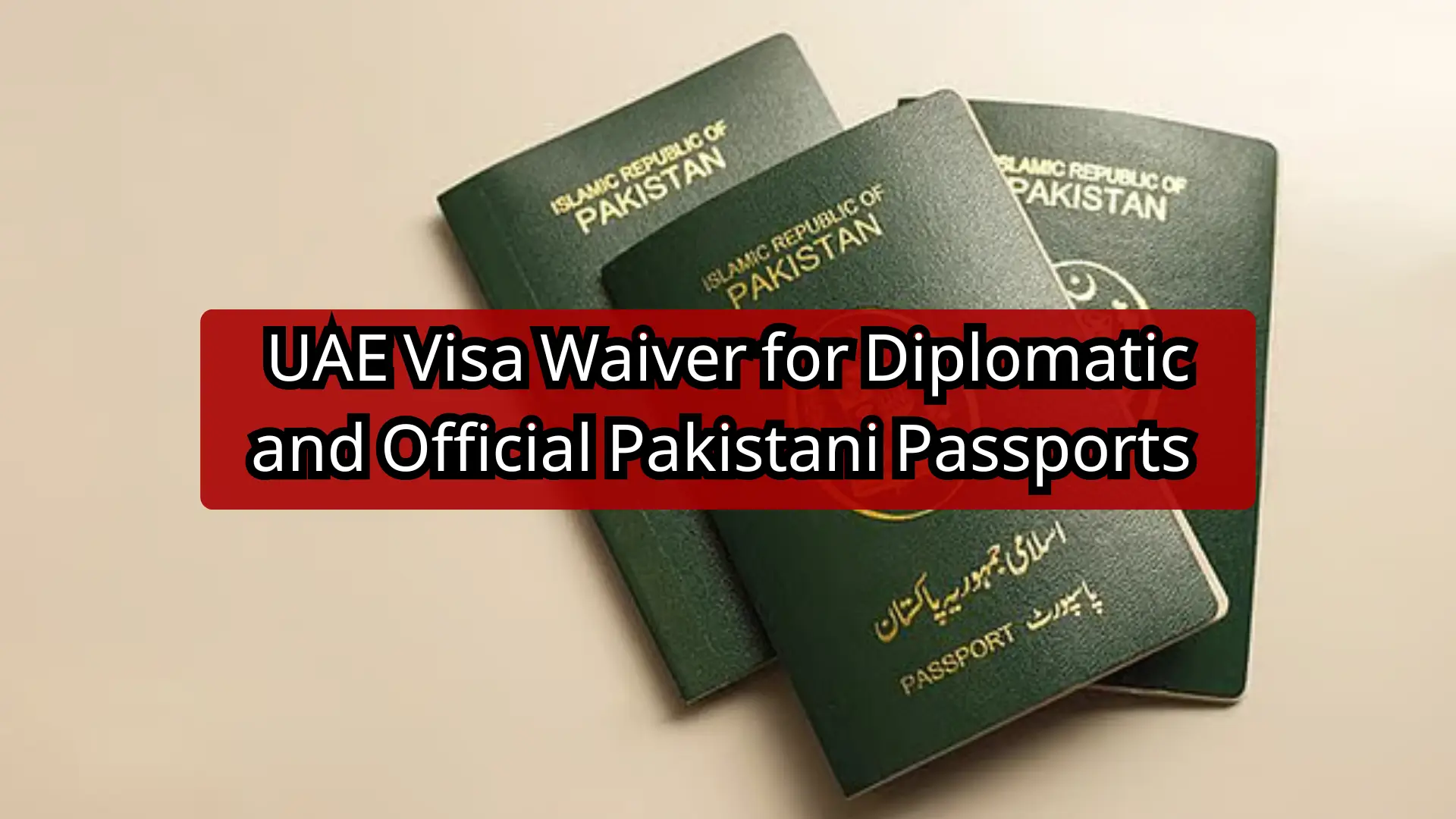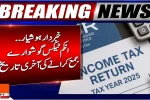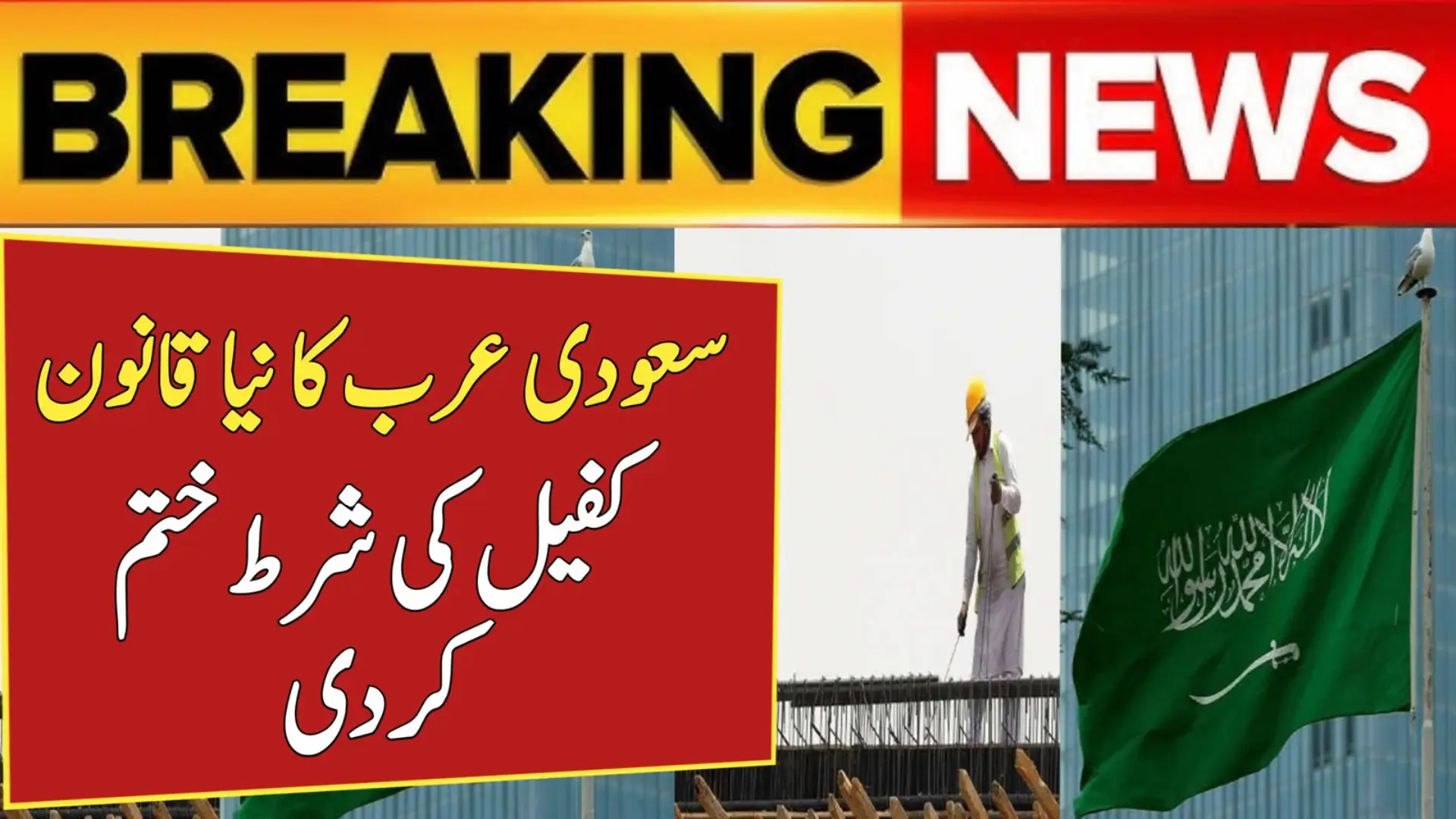The UAE visa waiver for diplomatic and official Pakistani passports has officially come into effect. Announced by Deputy Prime Minister and Foreign Minister Ishaq Dar, the agreement marks a major milestone in Pakistan–UAE relations.
Pakistan and UAE Strengthen Bilateral Ties
Pakistan and the United Arab Emirates share a long-standing relationship rooted in brotherhood, economic cooperation, and cultural harmony. The UAE hosts one of the largest Pakistani expatriate communities, and it remains among Pakistan’s biggest trading partners in the Middle East.
This visa waiver not only reflects mutual respect but also aims to simplify diplomatic communication and encourage official collaboration between Islamabad and Abu Dhabi.
Key Highlights of the Agreement
| Aspect | Details |
|---|---|
| Effective Date | July 25, 2025 |
| Signed By | Ishaq Dar & Sheikh Abdullah bin Zayed Al Nahyan |
| Scope | Diplomatic and Official Passports Only |
| Mutual Arrangement | Applies to both Pakistani and Emirati officials |
| Implementation | Activated at all UAE and Pakistani airports |
| Signed Under | Memorandum of Understanding (MoU) |
Official Announcement by Ishaq Dar
In a post shared on X (formerly Twitter), Foreign Minister Ishaq Dar confirmed that the visa waiver for diplomatic and official passports between Pakistan and the UAE has been activated.
“I have been informed by the UAE authorities that the visa waiver for diplomatic and official Pakistani passports entering the United Arab Emirates has been activated, effective July 25, 2025, at all UAE airports,” he wrote.
Dar also noted that the reciprocal visa waiver for Emirati nationals entering Pakistan has also been activated at all Pakistani airports.
He described this development as a “positive step between two brotherly countries”, aimed at enhancing government-to-government engagement and diplomatic mobility.
Signing of the Memorandum of Understanding (MoU)
The decision was formalized through the signing of a Memorandum of Understanding (MoU) between Pakistan and the UAE. Both countries agreed that the arrangement would become effective 30 days after signing.
The MoU was signed by:
- Ishaq Dar, Deputy Prime Minister and Foreign Minister of Pakistan
- Sheikh Abdullah bin Zayed Al Nahyan, UAE’s Deputy Prime Minister and Minister of Foreign Affairs
This agreement represents a new chapter in diplomatic facilitation, ensuring that government officials, diplomats, and state representatives from both nations can travel seamlessly for meetings, conferences, and joint initiatives.
Benefits of the UAE Visa Waiver for Pakistani Officials
The visa-free policy offers several benefits to Pakistani government officials and diplomats:
1. Simplified Travel
No need for lengthy visa application processes or embassy visits before official travel. Officials can enter the UAE directly with valid diplomatic or official passports.
2. Stronger Bilateral Engagement
Easier mobility allows for more frequent diplomatic meetings, enhancing mutual understanding and quicker implementation of joint projects.
3. Boost to Trade and Policy Coordination
With more direct interaction between government agencies, the policy supports economic dialogue, trade agreements, and foreign investment discussions.
4. Reciprocal Arrangement
The same benefits apply to Emirati officials visiting Pakistan, fostering equality and mutual trust.
UAE’s Continued Support for Pakistani Citizens
Earlier this month, UAE’s Interior Minister Lt Gen Sheikh Saif bin Zayed Al Nahyan assured full support in expediting visa procedures for Pakistani citizens.
During his meeting with Pakistan’s Interior Minister Mohsin Naqvi, he promised to simplify and speed up visa issuance, especially for Pakistanis seeking employment and family reunification in the UAE.
Naqvi highlighted the importance of easing visa rules, stating:
“We want Pakistani citizens to come to the UAE with ease. Relaxation in visa policies will bring great relief.”
This cooperation shows that the UAE remains committed to strengthening its bond with Pakistan, not only at the diplomatic level but also at the people-to-people level.
November 2025 MoU on Mutual Visa Exemption
The roots of this agreement go back to November 2025, when Pakistan and the UAE signed a mutual visa exemption MoU during the 12th session of the Pakistan-UAE Joint Ministerial Commission (JMC).
This MoU included:
- Exemption for diplomatic and official passport holders
- Plans to expand visa cooperation in future
- Commitment to simplify business, tourism, and trade travel between the two countries
The July 2025 activation now makes that understanding officially operational.
Broader Diplomatic Significance
This visa waiver represents more than just easier travel—it’s a symbol of diplomatic trust and shared vision for future cooperation.
Why It Matters:
- Encourages frequent exchanges between ministries, embassies, and trade missions.
- Supports ongoing collaborations in energy, investment, defense, and education sectors.
- Reduces administrative barriers that previously delayed official visits.
- Sets the tone for potential future visa relaxations for business and professional travelers.
The UAE’s continuous engagement with Pakistan demonstrates mutual respect and strategic partnership, particularly as both countries look to strengthen economic corridors and regional stability.
Diplomatic vs. Official Passports
| Category | Who Can Hold It | Purpose | Visa Waiver Under MoU |
|---|---|---|---|
| Diplomatic Passport | Ambassadors, High Commissioners, Ministers | For official diplomatic missions and international negotiations | ✅ Yes |
| Official Passport | Government officials and employees on state duty | For official travel representing government entities | ✅ Yes |
| Ordinary Passport | General public | For tourism, business, or work | ❌ No – Visa required |
Impact on Pakistani Expatriates in UAE
While this visa waiver currently applies only to diplomatic and official passport holders, it signals a positive diplomatic trend that may eventually benefit ordinary Pakistani citizens.
Pakistanis make up over 1.6 million residents in the UAE and contribute significantly to remittances. Improved bilateral understanding could lead to easier work visa processes, faster approvals, and policy reforms in the future.
Conclusion
The UAE visa waiver for diplomatic and official Pakistani passports officially became effective on July 25, 2025, marking a major diplomatic success.
This agreement symbolizes trust, mutual cooperation, and shared progress between Pakistan and the UAE. By simplifying travel for government officials and diplomats, both countries are paving the way for stronger economic, political, and cultural partnerships in the years ahead.
With the UAE reaffirming support for Pakistani citizens and the two nations moving closer diplomatically, this development reflects a promising new era of cooperation between Islamabad and Abu Dhabi.
FAQs About UAE visa waiver for diplomatic
1. When did the UAE visa waiver for Pakistani diplomats take effect?
The visa-free agreement became effective on July 25, 2025.
2. Who can benefit from this agreement?
Holders of diplomatic and official passports from Pakistan and the UAE can now travel without visas.
3. Does this apply to ordinary Pakistani passport holders?
No, regular travelers and workers still need a visa to enter the UAE.
4. What are the main benefits of this visa waiver?
It allows easy official travel, faster coordination, and stronger diplomatic relations between the two countries.
5. Could similar visa relaxations come for ordinary citizens?
While not confirmed, officials on both sides have shown interest in easing future visa policies for Pakistani citizens.
















